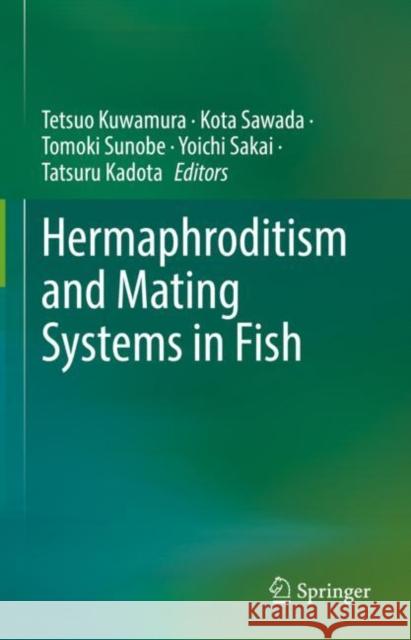Hermaphroditism and Mating Systems in Fish » książka
Hermaphroditism and Mating Systems in Fish
ISBN-13: 9789811960949 / Angielski / Twarda / 2022 / 250 str.
Hermaphroditism and Mating Systems in Fish
ISBN-13: 9789811960949 / Angielski / Twarda / 2022 / 250 str.
(netto: 613,40 VAT: 5%)
Najniższa cena z 30 dni: 616,85
ok. 16-18 dni roboczych.
Darmowa dostawa!
This book provides a comprehensive review of hermaphroditism in fishes. It focuses on the behavioral ecology of functional hermaphroditism in fishes and discusses its evolution.Approximately 99% of all vertebrate species consist of separate-sex individuals (gonochorists), i.e., pure males and pure females. The other 1% of vertebrate species are hermaphroditic, and almost all of them are fishes. Among hermaphroditic fishes, four major types of hermaphroditism are known: simultaneous (or synchronous) hermaphroditism, protandry (male-to-female sex change), protogyny (female-to-male sex change), and bidirectional sex change (or reversed sex change in protogynous species).The book examines the occurrence of hermaphroditism in relation to phylogeny and mating systems. It also reviews the hypotheses for the evolution of hermaphroditism, and the size-advantage model, which is the main theory for the evolution of sex change, tested in relation to the mating system. The appendix in the last chapter provides an annotated list of hermaphroditic fish species (ca. 500 spp.).
This book provides a comprehensive review of hermaphroditism in fishes. It focuses on the behavioral ecology of functional hermaphroditism in fishes and discusses its evolution.Approximately 99% of all vertebrate species consist of separate-sex individuals (gonochorists), i.e., pure males and pure females. The other 1% of vertebrate species are hermaphroditic, and almost all of them are fishes. Among hermaphroditic fishes, four major types of hermaphroditism are known: simultaneous (or synchronous) hermaphroditism, protandry (male-to-female sex change), protogyny (female-to-male sex change), and bidirectional sex change (or reversed sex change in protogynous species). The book examines the occurrence of hermaphroditism in relation to phylogeny and mating systems. It also reviews the hypotheses for the evolution of hermaphroditism, and the size-advantage model, which is the main theory for the evolution of sex change, tested in relation to the mating system. The appendix in the last chapter provides an annotated list of hermaphroditic fish species (ca. 500 spp.).











